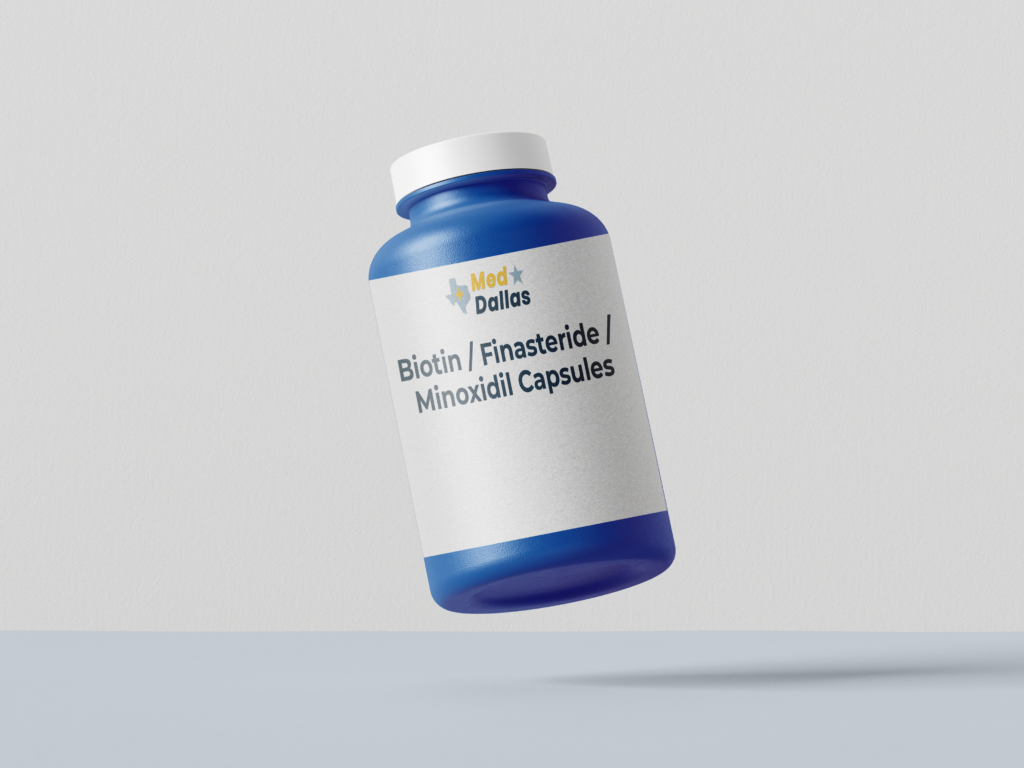
Hair Care
Biotin / Finasteride / Minoxidil Capsules
Biotin / Finasteride / Minoxidil Capsules are formulated to address various health and cosmetic needs with their distinct functions and benefits. Each capsule combines three active ingredients, with dosages available in 5 mg / 2.5 mg / 2.5 mg and 5 mg / 2.5 mg / 0.25 mg strengths, tailored to meet specific health requirements. Biotin, a B vitamin essential for carbohydrate, fat, and amino acid metabolism, supports metabolic processes and is commonly used for hair and nail health. Finasteride, a 5-alpha reductase inhibitor, is utilized to manage benign prostatic hyperplasia (BPH) and androgenetic alopecia by reducing DHT levels. Minoxidil serves both as an oral antihypertensive and a topical treatment for hair loss, promoting hair regrowth in affected individuals.
